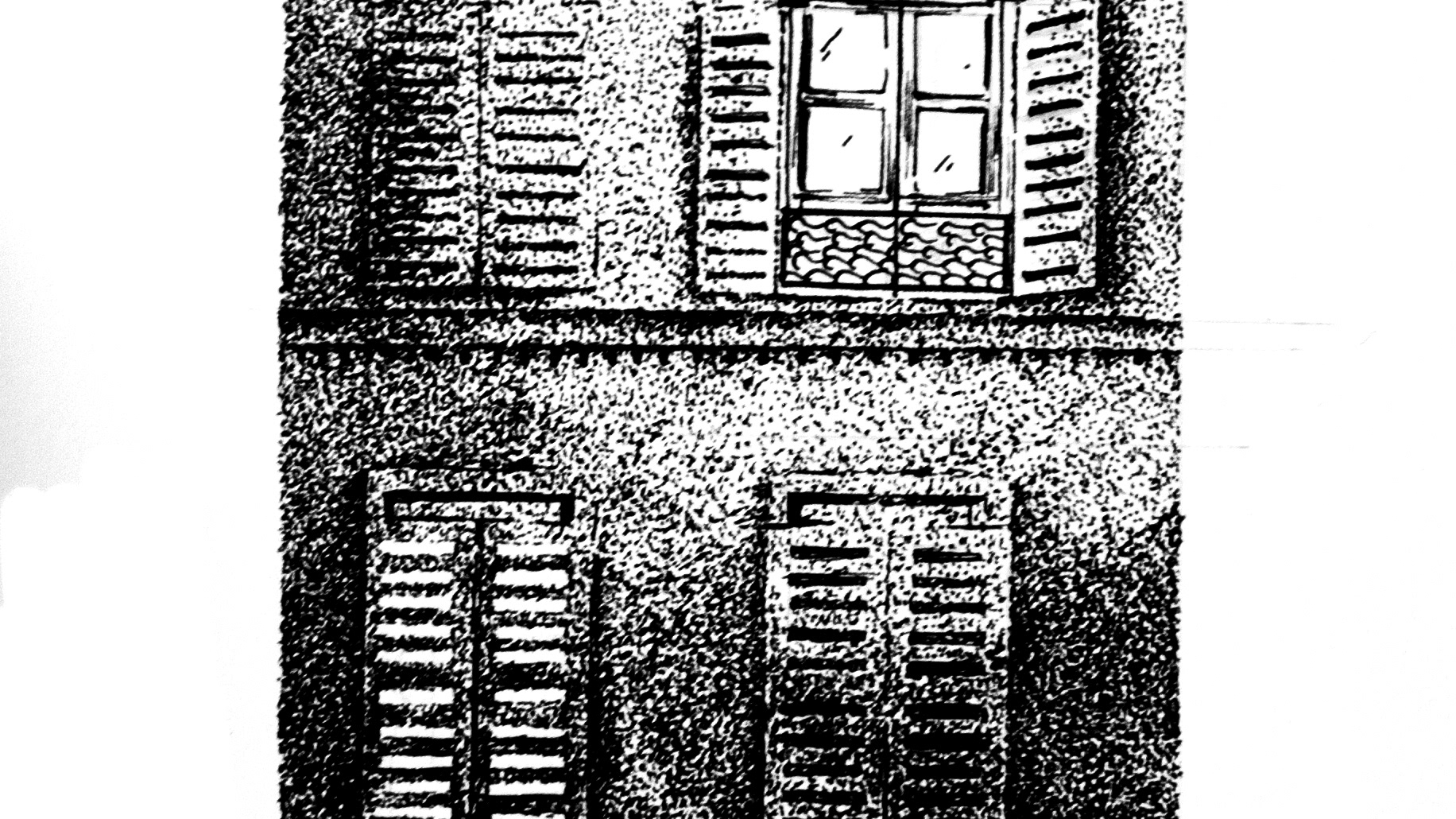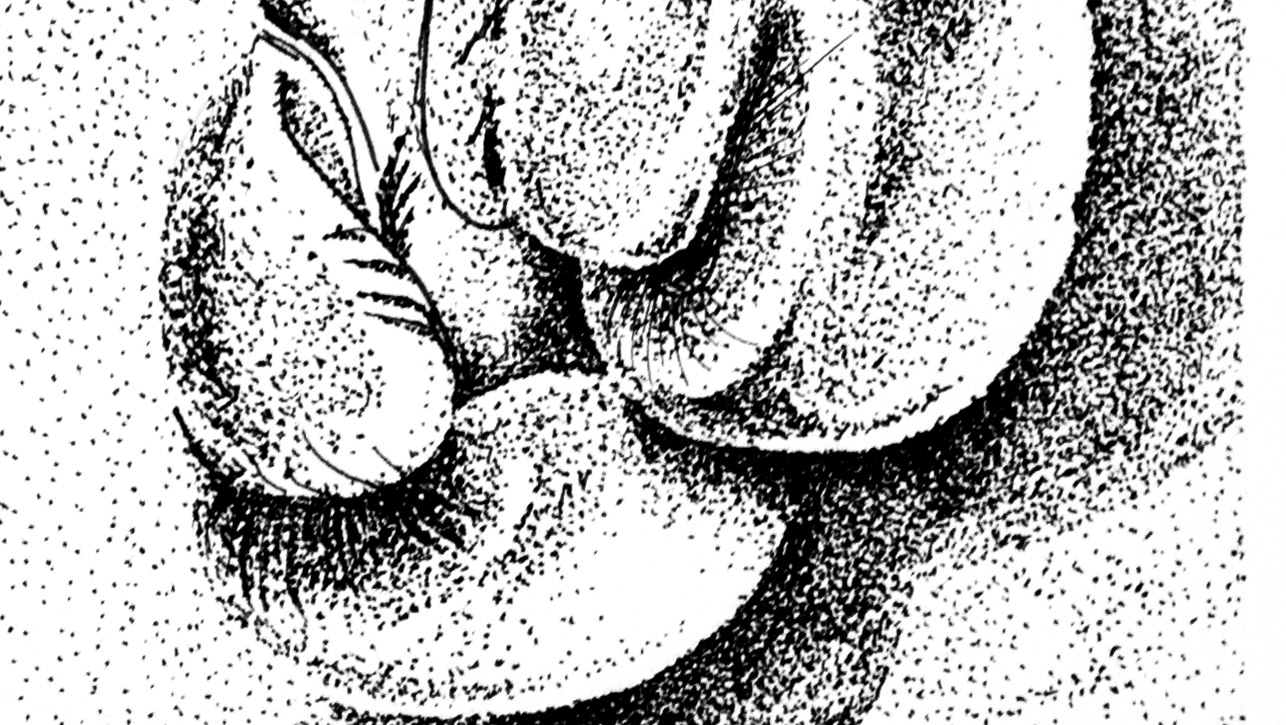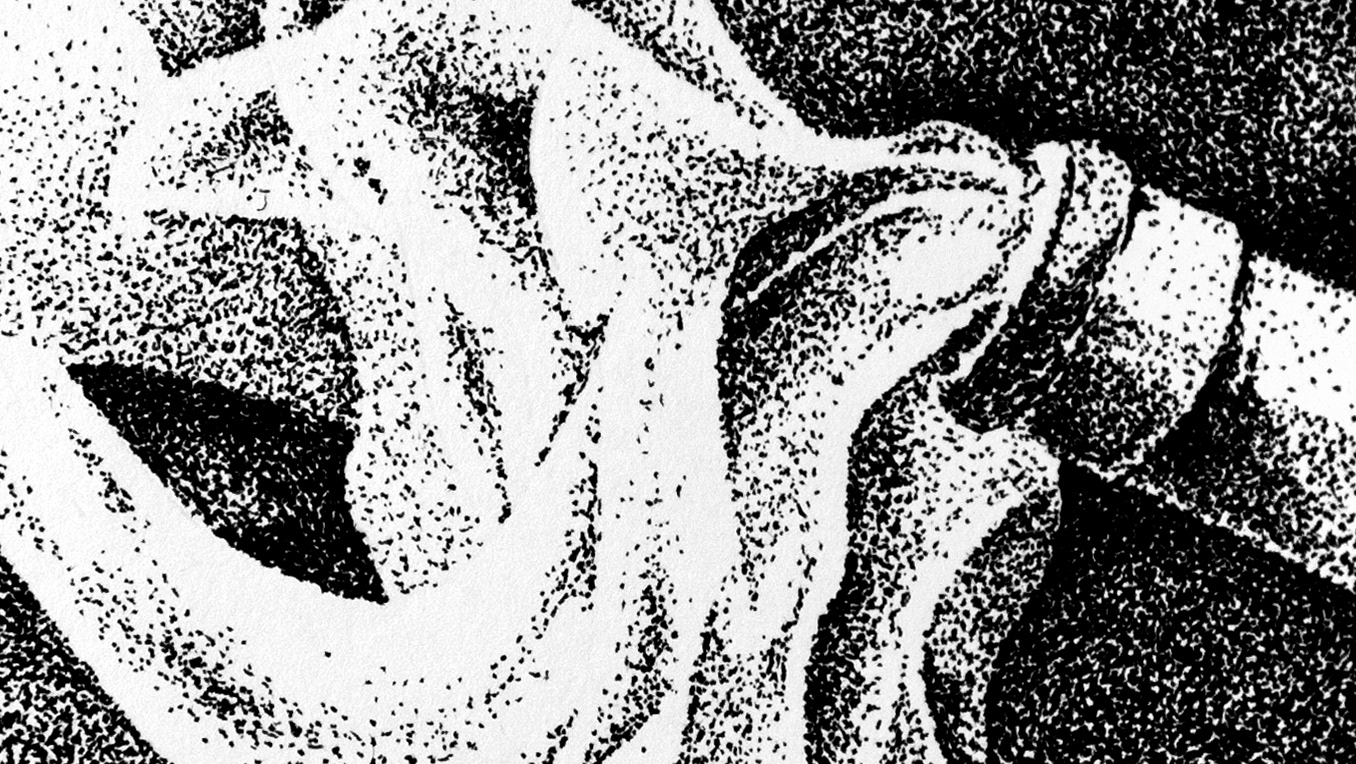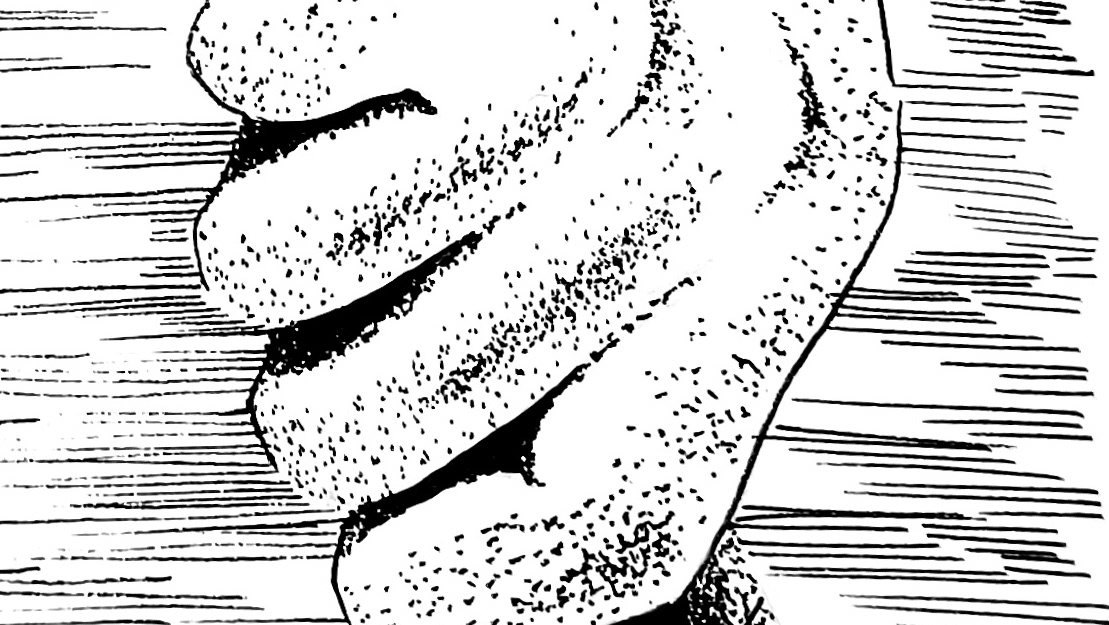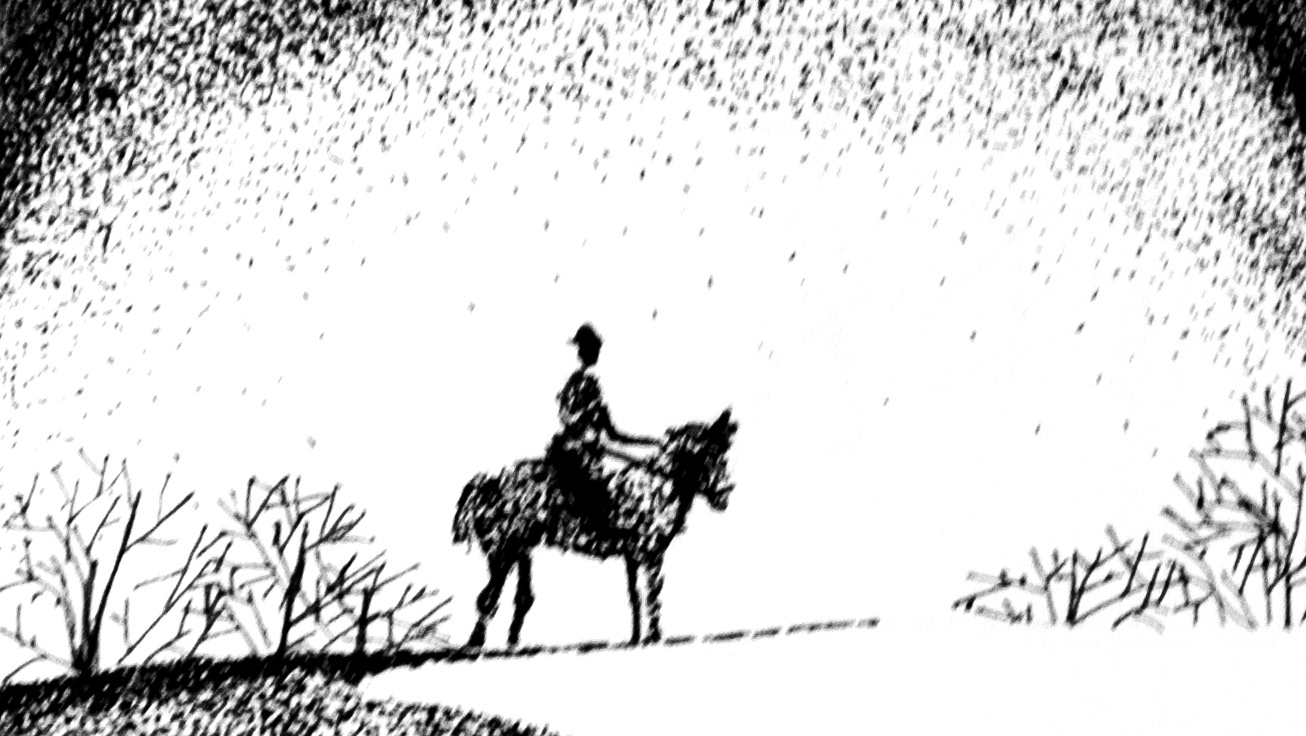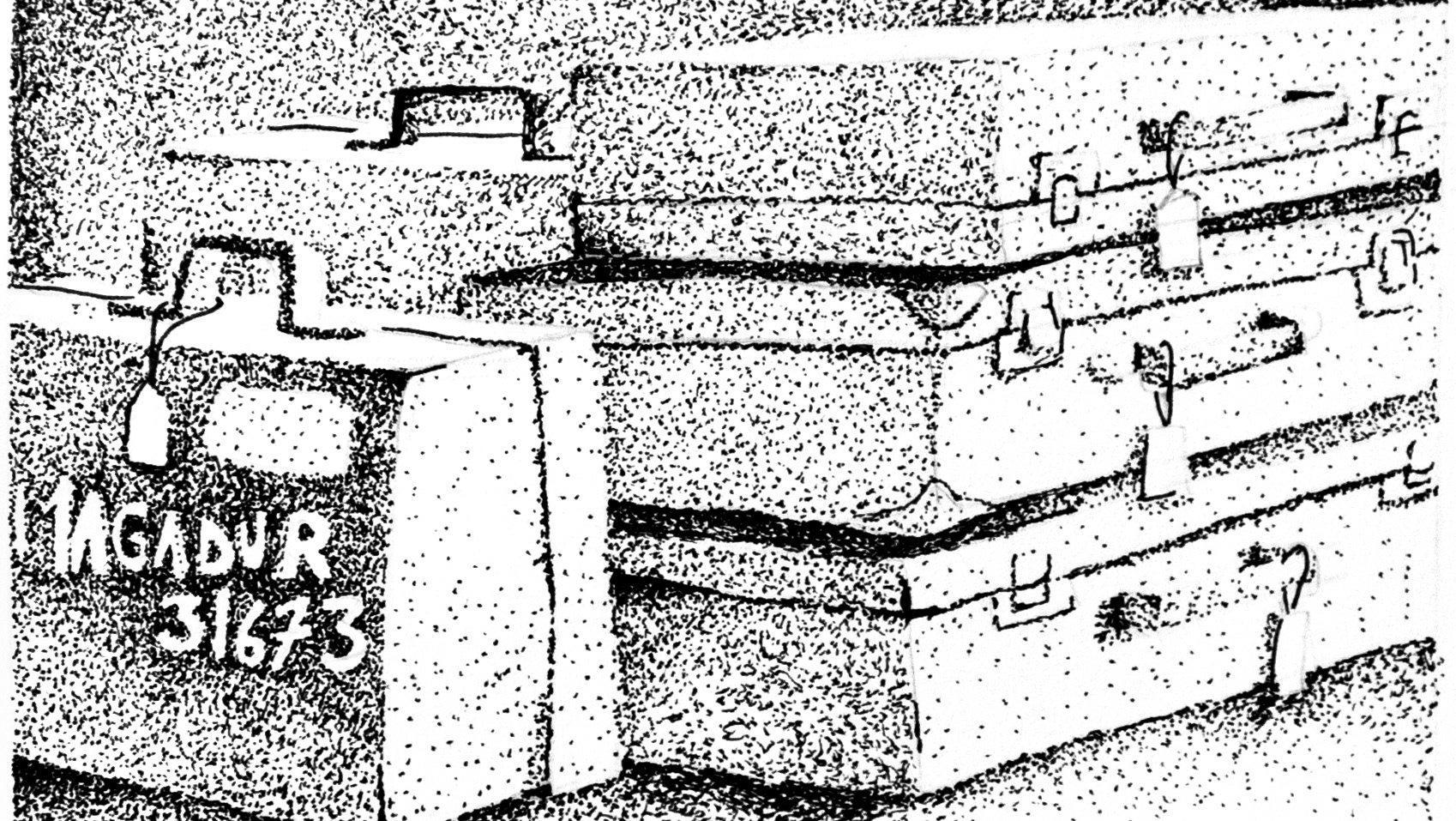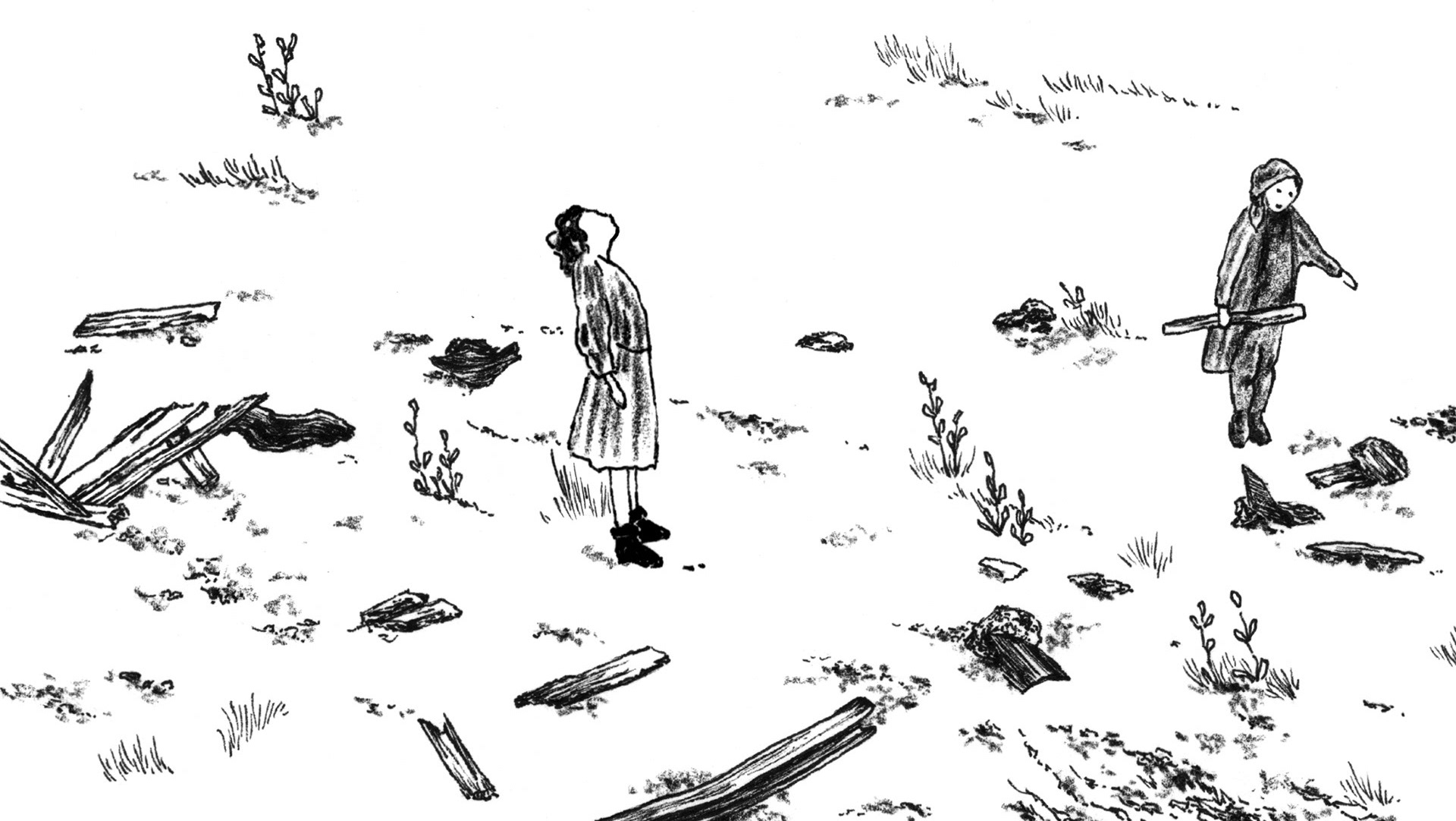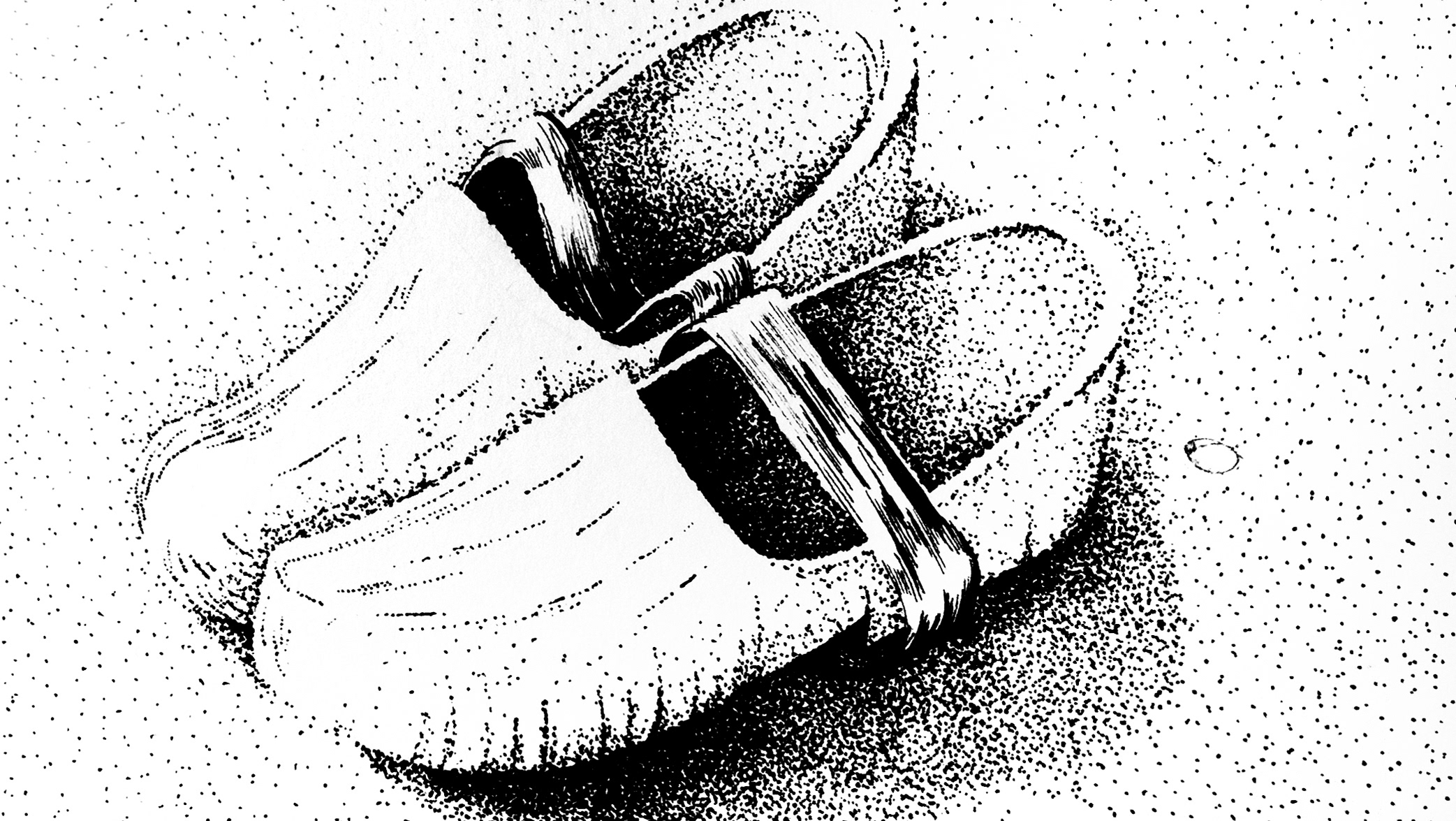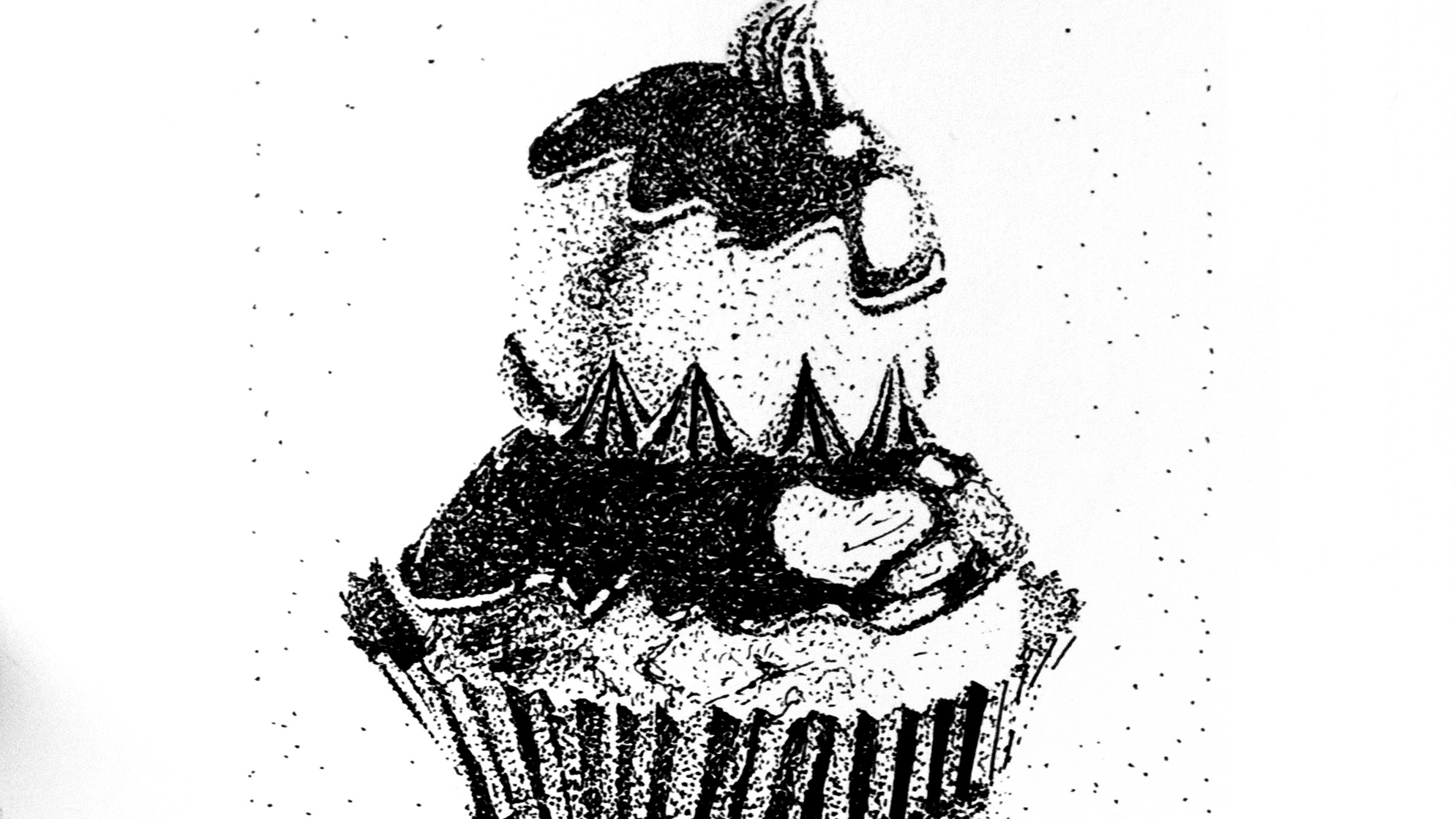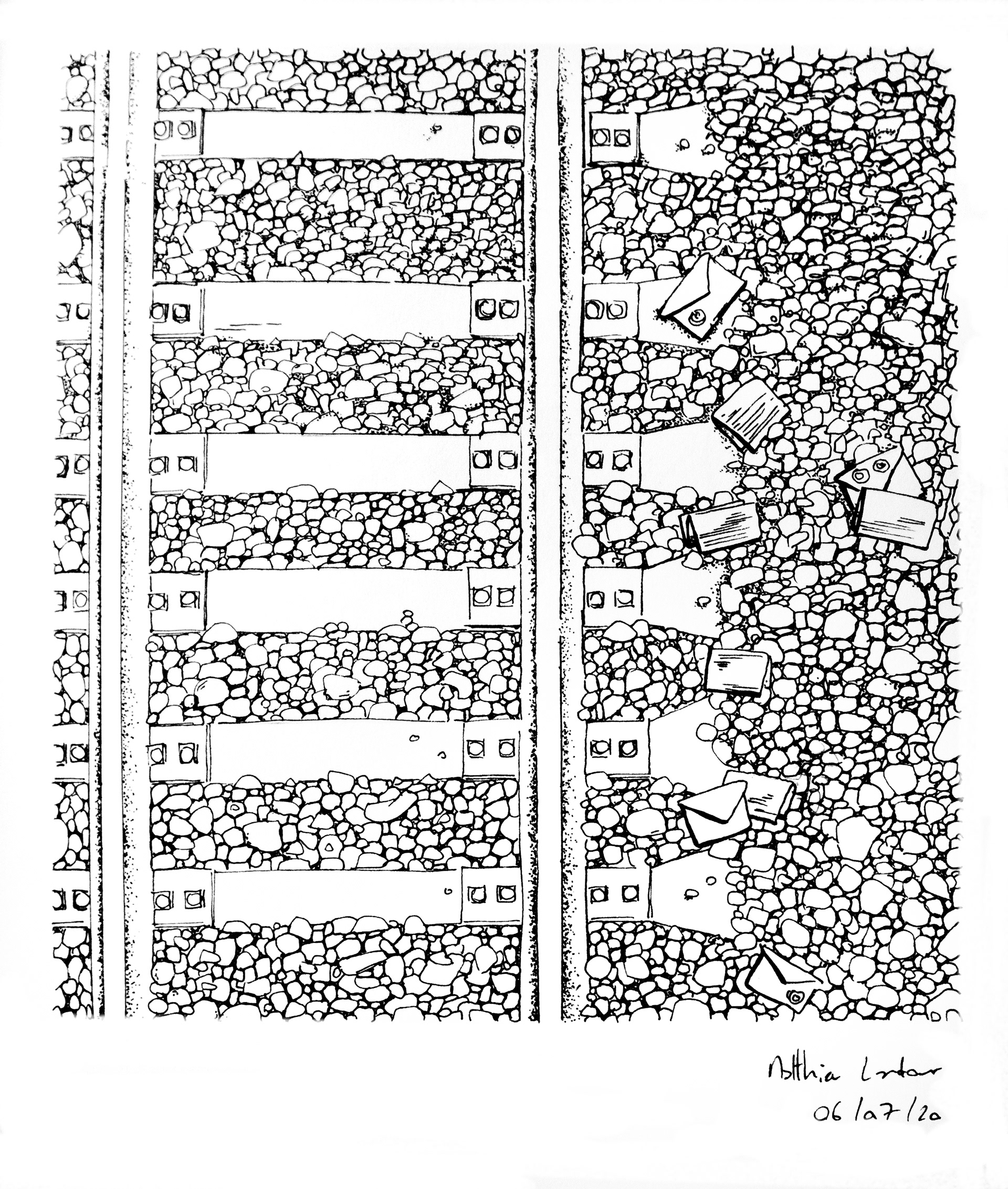
the letters on the tracks
Today is the 6th of July 1942, 1175 men have been walking from the Royallieu camp to the Compiegne train station. They have no idea where they are heading, probably another french or german camp, some have been told they might be going further east. They only know they have been selected as hostages, after some sabotage, on the order of some general. This makes little difference now, some of those men have been hostages for so long, whichever new camp they are heading couldn't be different than the previous one. They are prepared, they are organised.
As they all stop in front of the train, the hostages regroup. There are the communists from the city of Caen, the parisians, the northerners, the remaining french jews of the Royallieu camp, the ones who met in Aincourt, or Clairvaux, Rouille, Voves,... We meet familiar faces, Paulin Coutelas, Rene Cronier, Christophe Le Meur, Robert Lambotte, Robert Philippot, Renelde Lefebvre,... And there is another group, a very peculiar one, a little more on the side than the others, everyone calls them the undesirables.
The wagons are high, it takes time and energy to get in. The hostages help each other as much as they can, the german soldiers do the opposite. They push, they even hit sometimes. Eventually each wagons is filled, yet so many hostages are left on the station. Everyone expects another train to arrive, this won't be the case. The soldiers push harder, everyone has to get in that train, no matter how crammed they will be.
This is a nightmare. Inside each wagon are around 60 to 70 men, there is barely any space for 50. The wagons are dark and dusty, with only a few openings for fresh air, you would have to be tall or standing on a few luggages to reach those. In the middle of the wagon lies a massive oil can, the restroom. Everyone hopes for a quick journey, they have barely enough provisions for a day, and people will want to relieve themselves, whether the train stops or not.
Resisting can mean many things, its first meaning is to inform. The thousand men haven't been able to tell their families they have left Compiegne, this needs to be addressed. Some of the hostages were working in the train industry, they know that if a message is thrown on the tracks at some specific points, with a little bit of change attached, an employee could deliver it. So as the train departs, everyone is already busy writing a letter, hoping for it to be transmitted.
The train goes north, everyone wonders if they are going to Mourmelon, maybe Belgium.
Resisting also means protecting, taking care. In such harsh conditions, some have less provisions than others, some are weaker than others. Most of those men know one another, they have spent months together, some even years, and they are prepared for such a situation. Organisation is key and every wagon leader does its best to organise things. The first issue coming to mind is the heat, as it's july, and the place becomes hot very quickly. A roll is set up, so everyone can take turns and enjoy the fresh air of the small windows. Then food is gathered and shared as equally as possible, with a little extra for the weaker members. As for the toilets, well, the oil can is moved to a corner, nothing can be done about the smell.
The train passes Reims, it seems to be heading for Germany. Not to panic, the hostages know it is a possibility, some of their members speak german, they can keep their system of organisation, even in german speaking land.
Some of the hostages have no intention of going to Germany though, they have no intention of staying in any camp or working freely for the germans. They don't feel trapped inside this train, this train looks like an opportunity. An opportunity to escape.
There are several ways to escape a train. The simplest way is to jump as it still runs. Now this is so obvious that even the german soldiers would be expecting it, which is why some of the wagons have turrets with armed soldiers to look out for such an event, shoot if necessary. Every wagon has also been warned that if anyone attempts to jump and gets caught, there will be consequences for the others, executions even. In a way, the hostages are hostages to themselves. When Rene Maquenhen tries to jump, other prisoners hold him tight, they don't want to become consequences to his actions.
Jean Lebouteiller and Felix Bouillon want to give it a go anyway, they wait for the right moment, for the right train turn, where the turrets can't quite see. They notice a hole on the ground, jump, they land on the tracks as best they can, and they lay still, hoping no one saw them. It works, Felix and Jean are free. Only for a few hours though, german soldiers find them walking on the train tracks, they are sent right back to the Royallieu camp. But wherever this train is going, it's going without them.
Not so many people try, it’s too dangerous, you would have to be fearless to accomplish such a feat, probably a little crazy even. Inside another wagon, Marcel Claus, Jean Quadri and a few others are that right amount of crazy, and Marcel has a seesaw in his luggage, one he made out of scraps of metal from his own bed in the Royallieu camp. So they saw, and it takes time, the wood is thick. They manage to create a hole, small, just enough for Marcel to slip in. He gets under the wagon, holding tight, waiting for the next stop, for the right moment to let go.
The train stops in Metz, close to the german border. There lies another opportunity for whoever has the will to escape. You would just have to jump out of the opening, avoid the soldiers, mix with the crowd waiting for their commute. It sounds easier than it is, it is terrifying, and the chances to get killed are very high. Julien Becet and Antoine Corticchiatto give it a try, they jump on the station, and here they are, in the middle of the crowd, hoping not to get caught.
The crowd turns against them, a crowd who only sees prisoners trying to escape, men who might have done something terrible, intruders who should stay in prison.
The german soldiers are alerted, Antoine panics and attempts to run, he gets caught. Julien Becet doesn't panic, he barely moves, he blends in, he escapes. Inside the train, Jean Quadri looks for his Marcel and can't find him, he disappeared. Jean fears the worst for his friend, he probably fell, or got killed, or who knows, maybe he escaped. Jean fears he will never see Marcel again, and after he heard Antoine got caught, he closes the hole, no one would dare to escape again.
The train departs, it will soon reach the german border.
Inside the last wagon of the train, Antoine is tied to a seat, german soldiers take turns and hit him, they want to teach him a lesson. Marcel Claus is tied next to him, his face swollen too. He took a chance in Metz, the soldiers caught him right away after commuters denounced him. Undesirables inside and outside the train.
2 months ago, 18 men were moved from a prison to another camp. They have been arrested for different reasons. Julien Becet was arrested for burglary, Jean Quadri for weapons possession, Antoine Corticchiato for illegal drugs and weapons possession, Marcel Claus for stealing. They became hostages, they were deported because their country didn't want them anymore, they were undesirables.
Notes
Thank you for listening to this episode of 31000/45000, the story of 2 trains of french members of the resistance. My name is Matthieu Landour Engel, and so far, I haven’t talked much about the women resistants. As it is a chronological project, they will appear later on, starting episode 24.
This episode is centered around the undesirables, which are a group of prisoners deported as french criminals. They had committed various crimes, escaping, smuggling, thief, and so on. I mentioned a few people in this episode, Marcel Claus, Jean Quadri, Antoine Corticchiato and Julien Becet, they were all undesirables.
I have had the chance to discuss with Sabrine Mounier, the daughter of Jean Quadri. She took the time to tell me about her father, his life, his deportation. I am very lucky as she kindly shared with me many documents regarding her father. The reasons for his deportation as undesirable is a little unclear. He may have escaped a prison at one point, he was arrested for weapons possession by the german authorities on his way to Paris from the city of Nice, he didn’t have any ties with the communist party although he had many ties with various resistance groups, transporting weapons, helping members of the resistance hide at his flat. I personally believe that the authorities weren’t sure whether he was an active member of the resistance therefore classed him as an undesirable.
I also had the chance to discuss with Paul Filippi, a documentary director, who made a great piece about the 45000, and several other pieces about the corsican 45000, including Antoine Cortichiatto. He made a lot of researches, he kindly shared those with me, we had a great talk and I can only recommend his pieces, what will remain or ce qu'il en restera in french, and mini documentaries named life lines, or lignes de vie in french.
The letters that I mentioned were mostly sent to the families, fortunately, by employees of the french train line, which is a testament of their kindness. The first letter was sent by Roger Debarre and received by his father within a half hour. Apparently Roger knew that by throwing the letter at a specific point, it would be very close to where his father worked.
A few notes about the trains. The wagons are made of wood, the doors stand in 1,30 meters, there are very high to reach, and you don’t have any steps, any help to get in, apart from help from the others. The windows are high and very small, reaching the windows is already quite hard, jumping from it is a feat.
There is a barrel in the middle, which is used for relieving yourself. It can get very hot inside, it can sometimes reach 40 or 50 degrees, and in July, well it is very hot. So the conditions inside were dreadful, maybe some other trains were even worse, those types of conditions really didn’t improve over time, from what I have read.
The SNCF, the french national train line, obviously participated in the deportation to the east, as they provided the trains used to transport people. Yet it must be pointed out that the SNCF made no financial gain in doing so, it can’t be considered as a financial transaction, rather a forced order.
3 people escaped from this train journey. As I mentioned, Felix Bouillon and Jean Lebouteiller jumped out of the openings and laid on the tracks unnoticed by the guards. They were arrested a couple of hours later and were sent back to Compiegne. Felix Bouillon was freed on the 8th of January 1943, Jean Lebouteiller on the 11th of february. Antoine Corticchiato and Julien Becet attempted to jump on the Metz station , which was an impressive escape. Only Julien Becet escaped, and he disappeared in thin air. Apparently, he was known for burglary, and he kept on bruglaring in later years.
I have been trying to find Marcel Claus’s relatives, as well as Jean Lebouteiller, Julien Becet, Jean Antoine Cortichiatto, unfortunately, my research was unsuccessful. If by any chance, you know of someone related to their families, please let me know, I would be very pleased to get in touch and make sure the text I wrote doesn’t contain any errors.
My sources for this episode are the book Red Triangles in Auschwitz by Claudine Cardon Hamer, the website memoire Vive and deportes-politiques-auschwitz.fr, as well as an episode about the 2nd of July 1944 train from Compiegne, by Dominique Prusak, directed by Laurent Paulre.
Thank you very much for your attention, next episode will be about Raphael Manello and the exodus.
Notes
la gare de Margny les Compiegne?
documentaire radio sur les wagons de la mort
